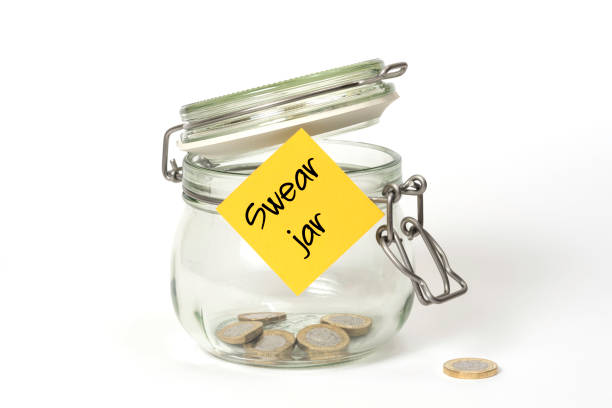
Can you be dismissed for swearing at work? Find the answer today
If you are like most people, it is likely that you have worked at a toxic workplace at one stage of your career. It may have been that at your workplace, swearing and abusive behaviour was an everyday occurrence. So, in an environment where bad behaviour is the norm, does that give you the right to act similarly? In other words, can you be dismissed for swearing or offensive behaviour if everyone else is doing the same thing? Swearing is not as easerily forgiven as it used to be. dismissals for bullying or harassment by swearing is on the increase
Australia: A nation of swearers
Even if you do not work in a toxic workplace, it is more than likely that you or your colleagues occasionally swear out loud. After all, Australians are among some of the biggest swearers in the world. A 2019 study by dental brand Oral-B revealed that the average Australian swears seven times per day. Perhaps unsurprisingly, it found that men swear more than women.The study found that South Australians are the most foul-mouthed in the country, swearing on average 16 times per day. While Western Australians are batting below the national average, swearing only five times per day.
So why do we swear so much at work? The study revealed that 54 per cent of Australian use profanity to relieve tension. While 24 per cent do so for comedic effect. So most of the time, swearing in the workplace is not malicious and unlikely to lead to dismissal or disciplinary action. And for many people, it is a coping mechanism or a way to bond with colleagues.
“Swearing has many different functions, it can be used to signal frustration, to emphasise emotion, or to show solidarity,” Senior Lecturer in Linguistics at Macquarie University Dr Nick Wilson told 7News. It does not matter if you work in a warehouse, an office or a kitchen, you are going to hear a few swear words while at work. So, the question remains…
Can you be dismissed for swearing at work?
There are no hard and fast rules when it comes to swearing in the workplace. Whether you can face disciplinary action or dismissal for swearing really depends on the context in which it took place. Also, what was said and the tone in which it was said.For swearing to amount to serious misconduct and therefore dismissal, it would need to cause a serious risk to the health and safety of another person. Or to the reputation or profits of your employer’s business.
For example, certain expletives could be considered discriminatory against someone of a particular sexuality, religion or race. This would therefore be considered to place their health and safety at risk. Additionally, some forms of swearing in certain contexts could be considered sexual harassment.
Another example that could see you fairly dismissed is if you swear to a customer, as this could damage your employer’s reputation. This situation was the focus of the unfair dismissal case Roderick Macdougall v SCT Pty Limited T /A Sydney City Toyota [2013]. The Fair Work Commission ruled that the dismissal was fair because the employee’s swearing at the customer placed the employer’s profits and reputation at risk.

Is offensive behaviour more acceptable when others are doing it too?
Employment relations tribunals like the Fair Work Commission have previously ruled on cases involving employees who were dismissed for swearing or crude behaviour. But these employees claimed that such things were normal in their workplaces, and therefore their dismissal was unfair.
One such unfair dismissal case is Torres v Commissioner of Police [2017]. The case revolved around Senior Special Constable Torres, whose conduct involved repeatedly discussing sexual conquests in the presence of junior probationary officers. This behavior was deemed not only offensive but also a form of serious systemic sexual harassment that was deemed utterly intolerable.
Constable Torres’ dismissal stemmed from a written complaint filed by a young female officer in 2015. Despite a distinguished career, which included commendations for bravery, his behavior displayed a “complete disregard” for the sensitivities of his colleagues.
Constable routinely made crude sexual comments
During his tenure at Parliament House as a high-ranking member of the security unit, Constable Torres engaged in a range of behavior that was described as “appalling.” This behavior included discussing explicit details of his sexual encounters. He also engaged in lewd acts with objects like bananas and identified his sexual conquests from security footage of female visitors. Constable Torres also made crude references to various sexual acts and made ill-disguised references to his “pet snake.”
In response to these allegations, Constable Torres argued that such behavior was part of the unit’s culture and that others within the same unit had engaged in similar actions. He claimed not to have received adequate training on the code of conduct and ethics outlined in the NSW Police Force Code or the harassment, discrimination, and bullying policy. Furthermore, he asserted that he had never been counseled or received warnings about his conduct.

Constable has unfair dismissal claim rejected
In its decision on this unfair dismissal case, the NSW Industrial Relations Commission delivered a clear message. Namely, that a culture of swearing and sexually explicit language cannot serve as a defense for offensive behavior. The NSW Industrial Relations Commission stated that a lack of training did not absolve Constable Torres of responsibility, given his senior role. Additionally, shifting blame onto the employer by claiming that the toxic culture had persisted for years was dismissed as an invalid excuse.
The NSW Industrial Relations Commission emphasised the gravity of the situation. It stated that there was nothing humorous about making colleagues feel humiliated or uncomfortable due to explicit and insensitive comments. He particularly noted the adverse impact on young female officers who were the targets of sexual harassment and bullying. The NSW Industrial Relations Commission ultimately found that the dismissal of Constable Torres was neither unjust nor unreasonable, given the severity of his misconduct. And his distinguished career did not mitigate the seriousness of his actions.
Corrections officer who called director a “prick” unreasonably transferred
Another case that involved a worker who faced disciplinary action for using inappropriate language is Winter v Department for Correctional Services [2023]. In this case, a correction’s officer was transferred to another department after he called a director a “prick.” However, his colleagues regularly said far worse about him, yet did not face any punishment.
The corrections officer, Darryl Winter, had begun working for the South Australian Public service in 2003. In the seven years leading up to this case, he had been employed as an Intensive Compliance Officer. Mr Winter worked in the Intensive Compliance Unit within the Department for Correctional Services.
In 2021, the Department for Correctional Services interviewed Mr Winter concerning reports it had received about instances of inappropriate behaviour. During the interview, it was determined that some of the complaints were due to Mr Winter’s behaviour.

Mr Winter faces disciplinary action and workplace investigation
The Department for Correctional Services subsequently levelled four allegations against Mr Winter. Each allegation concerned his use of derogatory and offensive language in the workplace. In his written response to the allegations, Mr Winter denied them. He criticised the investigation into the allegations, noting his concerns about procedural fairness and bias against him.
Following the workplace investigation, the Department for Correctional Services found that Mr Winter was guilty of three of the allegations. He was therefore advised that he would face disciplinary action. Mr Winter attempted to challenge the outcome of the workplace investigation via an internal review mechanism. However, this found that the outcome was justified.
External review finds disciplinary action was unreasonable
Mr Winter was then asked to respond to the proposed disciplinary action. But instead, he made an application for an external review of the workplace investigation. This review was conducted by the South Australian Employment Tribunal. The review found that the Department of Correctional Services had a bias against Mr Winter. It also found that the department had conducted its workplace investigation with a “pre-determined view.”
The report concluded that the department had relied on the evidence of staff who had previously been entangled in conflict with Mr Winter. Or those staff who had an “underlying motivation to negotiate a financial settlement” with the department. Ultimately, the report stated that the Department of Correctional Service’s disciplinary action had been harsh, unjust and unreasonable
Department says Mr Winter called a colleague’s father a “prick”
The South Australian Employment Tribunal remitted the disciplinary action decision to the Department of Correctional Services for reconsideration. However, the department maintained its stance on one of the allegations. Namely, that Mr Winter called a colleague’s father, who also happened to be a regional director, a “prick” during a conversation in 2018.
The department proceeded with its disciplinary action to punish Mr Winter for his misconduct. He was transferred to Adelaide’s Noarlunga Community Correctional Centre. He would retain his substantive classification, however, Mr Winter was transferred to the position of community corrections officer.

Review finds “toxic and divided” workplace
Following his disciplinary action, Mr Winter asked for the South Australian Employment tribunal to conduct a second review. This shed light on the broader workplace culture within the Intensive Compliance Unit. The review found that the unit was a “toxic and divided workplace.” Evidence suggested that the use of derogatory language was not uncommon among staff members. It was also found that the unit had a history of interpersonal conflicts.
It was found that Mr Winter was the “leader of one group or faction which clashed and took issue with the behaviours and actions of another group. This group included “quite a few employees with managerial or supervisory roles.” And there was “no doubt” Mr Winter made complaints that resulted in issues for the unit’s management.
Workplace was like “wild west”
Mr Winter described the Intensive Compliance Unit as “being like the wild west.” He had made several complaints about the behaviour of his colleagues. This included one about staff urine testing inmates without adequate qualifications and training.
Mr Winter also complained that one staff member made racist remarks and hit him forcefully with his right arm. He also said that another staff member threatened to strike him in the throat. Mr Winter also made a complaint that one staff member had branded him “pathetic,” a “smart arse” and a “f**king c*nt.”
The South Australian Employment tribunal also heard via another staff member that a colleague had barged into a meeting and called Mr Winter a “[f]*ck [h]ead,” a “[c]*nt” and a “[f]*cking [c]*nt.”

Was the disciplinary action unreasonable? South Australian Employment Tribunal makes ruling.
In considering the case, the South Australian Employment Tribunal had a very unfavourable assessment of the atmosphere within the Intensive Compliance Unit. It noted that the conduct of its staff “should not be accepted in any workplace.” It was found to be a workplace where staff were routinely “threatened and intimidated verbally and physically.” And where it was common to hear foul and threatening language.
The Tribunal considered Mr Winter’s use of the word “prick.” It found that the term was “not offensive by reference to the language described in the evidence.” It was accepted that far more offensive behaviour was “tolerated or ignored” in the unit.
No connection between “prick” and disciplinary action
The South Australian Employment Tribunal found that there was no link between Mr Winter calling the director a “prick” and the decision to move him to the correctional centre. It noted that the Department of Correctional Services made the decision to transfer him three years after the incident occurred. It was therefore found that the department was “searching for a reason to move [the officer] out of the ICU rather than having a genuine concern about [the] allegation.”
The Tribunal found that the decision to transfer Mr Winter was “not justifiable.” It characterised the transfer as “disproportionate” and “harsh” because the incident complained of was “relatively trivial.” The Tribunal stated that transferring Mr Winter was an “unreasonable exercise of power.” Given these findings, the Tribunal referred Mr Winter and the department to formal mediation.
Conclusion to: Can you be dismissed for swearing at work?
Have you found yourself a victim of unfair dismissal or workplace discrimination? Have you suffered injustice for defending your workplace rights? Look no further than A Whole New Approach for the guidance and assistance you require. Time is of the essence – you have just 21 days from your dismissal date to file a claim with the Fair Work Commission. Abandonment of employment issues or forced to resign call immediatly.
A Whole New Approach has successfully assisted thousands of employees to take action through the Fair Work Commission. Employers fear us for our reputation in helping workers hold them to account. If you have experienced unfair dismissal or adverse action at your workplace, do not procrastinate. We work on a national basis, including, Victoria, NSW, QLD.
Reach out to A Whole New Approach today at 1800 333 666 for a free and private conversation about your situation.






